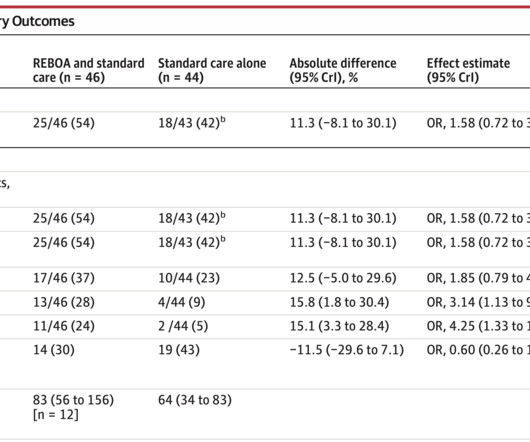UK-REBOA on Trial: Innovative or Over-Inflated?
RebelEM
NOVEMBER 20, 2023
Military practice guidelines recommend REBOA for profound shock (SBP <90mmHg) 1 and ACEP along with the American College of surgeons recommend REBOA for traumatic life-threatening hemorrhage below the diaphragm in patients with hemorrhagic shock who are unresponsive or transiently responsive to resuscitation.











Let's personalize your content